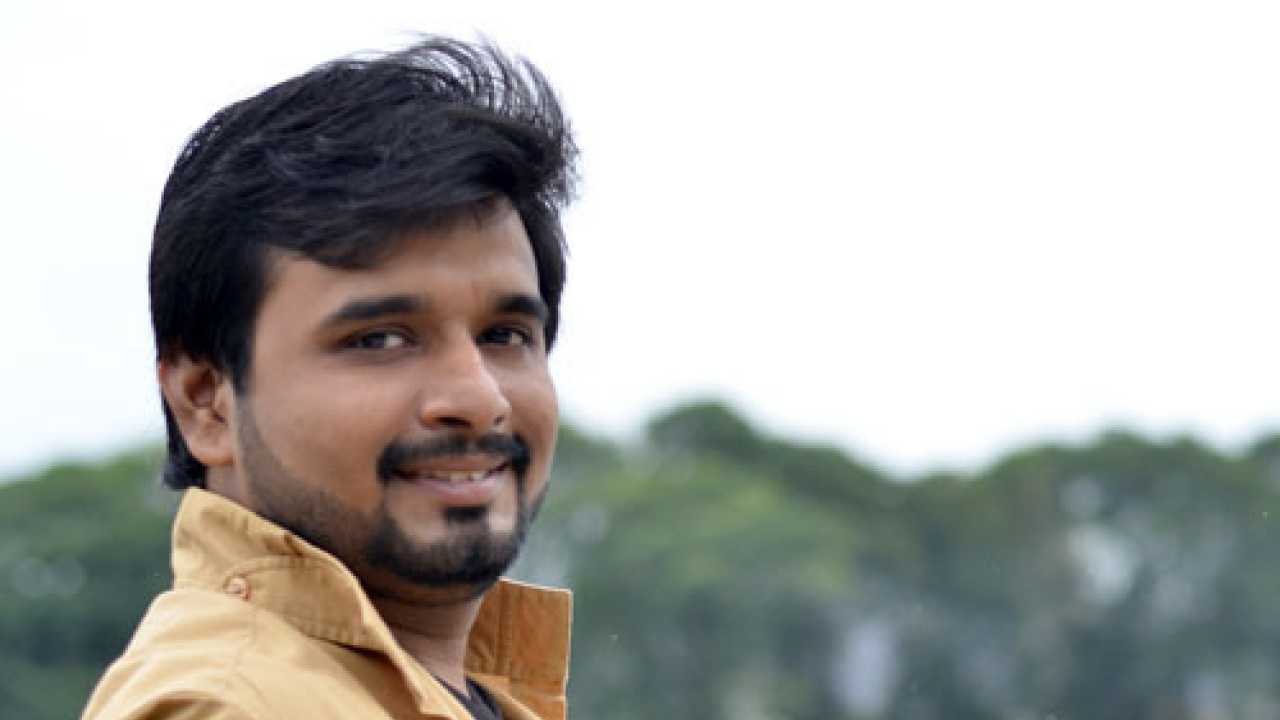
Sudeep Nagarkar is most famously known for being the romantic face of ‘modern Indian’. The author wrote his first book in 2011 and Few Things Left Unsaid became an instant bestseller. He followed that up with It Started With A Friend Request, Sorry, You’re Not My Type and That's the Way We Met (his fans appear to appreciate that his book titles are relatable).
The electronics engineer from Mumbai University is an avid reader but doesn’t really have a literary inspiration. He considers his parents and his readers to be the driving forces behind his work. Sudha Murthy is one of his favourite Indian authors. He has been a guest speaker at many literature festivals in the country but believes they can lead to monotony and result in a decrease in attendance.
Earlier in December 2014, he released his latest book You’re The Password to My Life. Much like his other work, this book too is based on a true story. We caught up with the author for a quick chat.
Tell us about your latest book You're the password...
We all have that one person in our lives in whose absence our existence seems meaningless. You’re the password to my life is one such story of two close friends—Virat and Kavya—and how they redefine the rules of friendship. From childhood, we are used to watching Bollywood movies where a guy and a girl meet, become friends, and eventually fall in love. But this book will break the stereotypical bond of a girl and a guy and will show how friendship is the only relationship that does not sink.
Your first book was based on your own story. Was it easier to write about yourself as compared to others?
I think it’s the opposite. It is easier to write about others than it is to write about oneself. When I wrote my first book, I had to relive all the moments that I had gone through in the past and it was never easy. Reliving the breakup phase which happened during my college days and penning it down troubled me a lot. I was about to quit, but my friends motivated me throughout the writing journey.
Why do you prefer writing stories that are based on real life?
Though all my stories are based on real-life incidents, I do fictionalise some of it so that the story flows smoothly. However, I strongly believe that we all have a story to tell. Look around you—there are so many untold stories, some that are really gripping and inspiring, and need to be read and heard by a larger audience. But I consciously attempt to write only those stories that have a strong message for the youth.
I do change names of the people involved, and sometimes even the places, so that their real identity remains a mystery. However, more than convincing those people, the real challenge is to convince their parents so that they can understand their child better. I even acknowledge everyone in my book and everyone has supported me selflessly till now.
How did you begin your writing journey?
Writing provided me with closure by helping me come out of depression after my break up and failure in engineering. Now I not just have 5 best-selling novels to my credit, I also have a degree in management studies. For me, the love of my readers means everything and they are now part of my extended family.
You've been consistent (and successful) with writing on romance and relationships. Why this genre?
I feel romance is evergreen. Every relationship is different and has its share of ups and downs. But as I said before, all my books have one positive message in them. After reading the book, even if one person implements that in his or her life, then my work is done.
Is it possible to be a successful new author without attracting criticism and controversy?
Every creative person has to face criticism. Be it authors, actors, or cricketers. What’s important is how genuine that criticism is. With the increasing popularity of social media, a lot of attention-seekers try to post comments that are in bad taste, just to get noticed. One should not pay heed to such criticism if it’s meant to irritate. If it is genuine, then one should accept it and try to improve in future. Also, if you are confident about what message you want to convey and are clear in your thoughts, such controversies hardly matter.
How do you handle criticism, especially the urge to respond to people without getting into a fight with them?
Like I said, firstly, criticism should be genuine. If so, then I think about it for sure. But if you should implement the changes in your next work completely depends on the subject. For example, I released You’re the password to my life on December 1 which happens to be Worlds Aids Day. It was on purpose as the book highlights a sensitive topic of HIV+. I visited an NGO that day and spent some time with people who are actually HIV+ to know their feelings, instead of talking about the book. There were people who opposed this act on Facebook but I think you can’t please everybody. Ultimately you should always follow your heart and do what you feel is right without listening to other people.
What is the worst criticism you have received for your work?
There was this guy who asked me to stop writing and return the money he had spent on the book. Later, when I interacted with him on Facebook, I realised he was saying that out of frustration as his girlfriend demanded from him the same kind of love that was portrayed in the book and he couldn’t match that level.
'You’re The Password to My Life' has been published by Random House India.